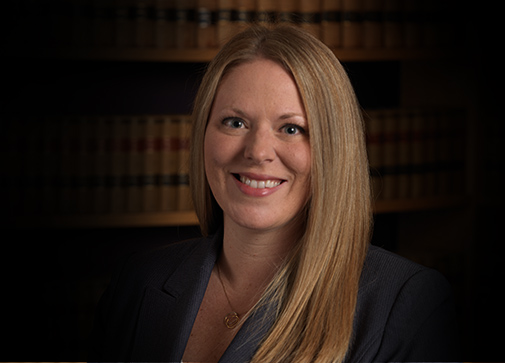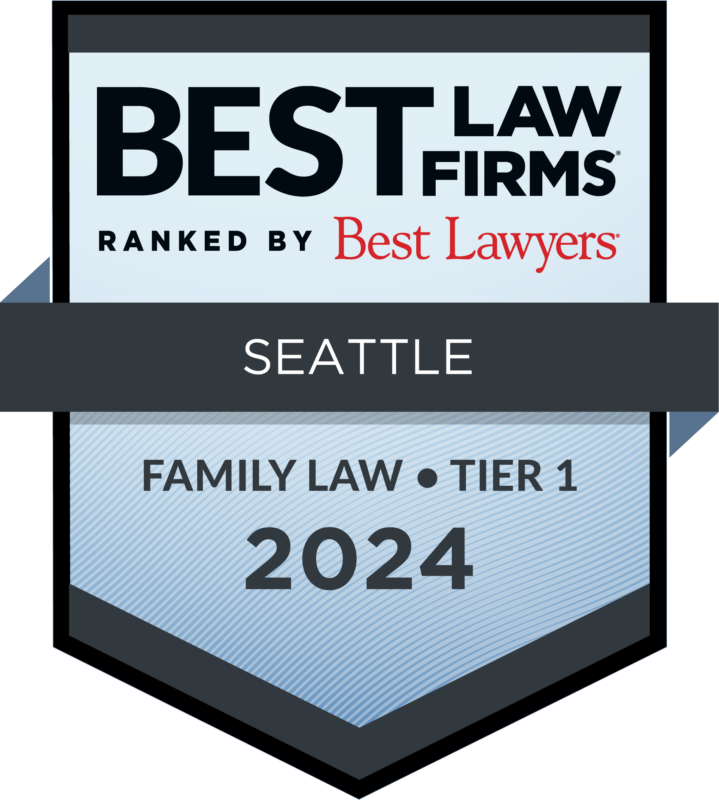Divorce
At Brewe Layman, we know that divorce can be one of the most challenging times in a person’s life. We also know that people come to the decision to divorce gradually and with mixed emotions. Our attorneys are prepared to work with you, at your pace—whatever that is.
Some clients seek aggressive, no-stone-unturned representation in order to expedite the process as quickly as the courts will allow and to achieve a fair and favorable financial and child-custody result. In other cases, both parties agree on the key issues, but may need some counsel and assistance to finalize the details. In still other situations, one or both parties may have lingering doubts about the best course of action for the marriage and are seeking a slower pace.
Since no two divorces are alike, our attorneys are prepared to meet our clients wherever they are. We are staunch client advocates and aggressive courtroom litigators; we are skilled and seasoned mediators and negotiators; and four of our attorneys are trained in Collaborative Law methodology.
Brewe Layman brings extensive experience to divorce matters involving complicated high-asset estates. Issues involving professional practices, family-owned business entities, multi-generational gifting issues, overseas assets, unique assets (we have seen accounts in the Cayman Islands, Barbie collections worth hundreds of thousands of dollars, and more safety deposit box surprises then we can remember), trust estates, stock options, and issues involving highly-compensated corporate employees are amongst those we routinely work on.
Experience, a cadre of top-notch experts to assist as needed, confidentiality, organizational skills, and an exhaustive and tenacious approach is what we bring to such cases. Whether the estate is separate, community or blended property, and regardless of whether it is worth $1 million dollars or $100 million dollars—we’ve been there and know how to get it done.
Please contact Ken Brewe for further information.
Maintenance (commonly called alimony or spousal support) is a legal obligation placed upon one spouse to provide financial support to the other spouse after a divorce. Maintenance is potentially available to spouses of either gender, as well as to registered domestic partners. There are a number of non-exclusive factors in determining a maintenance award, including available financial resources; the standard of living during the marriage or domestic partnership; the duration of the marriage or domestic partnership; the age, physical and emotional condition of the requesting party; and the needs of the requesting party vs. the ability of the other party to pay.
Courts have broad discretion in awarding maintenance and seek to assign spousal financial support that is fair and just in light of all the relevant factors. A court may also order a spouse or domestic partner to pay maintenance on a temporary basis while the case is pending. Because of the intricate and non-exclusive nature of spousal maintenance, having the right representation is essential. The right lawyer can obtain and organize the information to ensure that both parties are treated fairly when it comes to spousal maintenance.
Relevant Statutes and Case Law:
- Washburn v. Washburn, 101 Wn.2d 168, 178-79, 677 P.2d 152 (1984).
- RCW §26.09.090 provides the statutory basis for a maintenance award to a spouse or domestic partner.
- RCW §26.09.170 stipulates that maintenance modifications can occur if there is a substantial change in circumstances or the ability of one party to pay the other (loss of income, health issues, etc.).
When mental health or addiction issues are factors in a marital dissolution, the stakes are higher. If one spouse is unstable or incapable of fulfilling his or her obligations, it adds a layer of complexity to highly-charged matters such as child custody and spousal maintenance. We have extensive experience working with clients in which one party has a mental health or addiction problem (or is being accused of having one).
To establish this in court, however, requires that an attorney examine the situation with as much care, compassion and objectivity as possible—always keeping in mind what’s in the best interest of the minor children who will be directly impacted. When it comes to navigating the choppy waters of mental health issues and addiction, there are no easy or straight-forward answers. The best outcome may not be the most obvious one. We’ll help you define and obtain the best results for everyone involved.
Protection Orders are designed to address domestic violence between family members, spouses, boyfriends and girlfriends. A Temporary Protection Order is meant to stop violence from escalating or to prevent an assault. If you are living with the abuser, it gives police authority to remove the person from your home for a period of time. In granting the Protection Order, the court may order that the offender have no contact with the victim or children. A Temporary Protection Order usually lasts until a hearing can be held.
When an adult or child is in imminent danger of being a victim of violence, courts will enter a Protection Order, which prohibits the named defendant (the violence perpetrator) from making any contact with or from coming within a specified distance of the protected parties. Anyone breaking the terms of a protection order faces criminal arrest and prosecution. The terms of personal protection orders can be drafted to suit the needs of individual cases. For example, sometimes special provisions need to be made to allow for visitation with children and exchanges of children.
Relevant Statutes and Case Law:
- RCW §26.50 Protection Orders
- RCW §10.14 Anti-Harassment Orders
Results – Now.
Brewe Layman has skilled and experienced mediators to help our clients resolve conflict in the most expeditious, cost-effective and private manner possible. Commonly used in divorce cases, mediation is a completely voluntary process undertaken by participants wishing to avert more expensive and time-consuming litigation.
Ken Brewe leads the firm’s mediation team. He has over 30 years of experience and has participated in over 1,000 mediations and arbitrations. A leader in the industry, Ken has earned recognition from Martindale Hubbell, SuperLawyers and U.S News & World Report for his work in the area of family law and mediation. The firm also collaborates with Ken Evans, who provides mediation services to clients in Skagit and Whatcom counties.
Our team of seasoned family law attorneys has participated in countless trials and understands the range of outcomes that clients may face in a trial setting. As mediators, they bring creative problem solving ideas and techniques to the table to facilitate a resolution.
The mediation team at Brewe Layman knows how to balance the needs of both parties and helps clients reach solutions that are both fair and sustainable, while maximizing the outcome for the individuals – and the children – involved. When you pursue resolution of a family law matter through mediation or private arbitration, Brewe Layman offers:
- A Private Solution: Clients appreciate the opportunity to work out their differences in a confidential fashion behind closed doors, instead of an open courtroom.
- Your Voice Will Be Heard: Solutions are not imposed upon our clients. We facilitate a resolution that allows for maximum client input when structuring the outcome.
- Enforceability: A binding and fully enforceable CR-2A Settlement Agreement is our goal.
- Experience: Seasoned direction/input from very experienced family law practitioners.
To view a partial list of documents you should compile and bring to your initial consultation, click here.

“Our clients expect diligence and perseverance. I think what surprises them is how hands-on and approachable we are.”
QUESTIONS?
We take pride in bringing you experienced and ethical legal
representation in a manner that feels surprisingly approachable.







